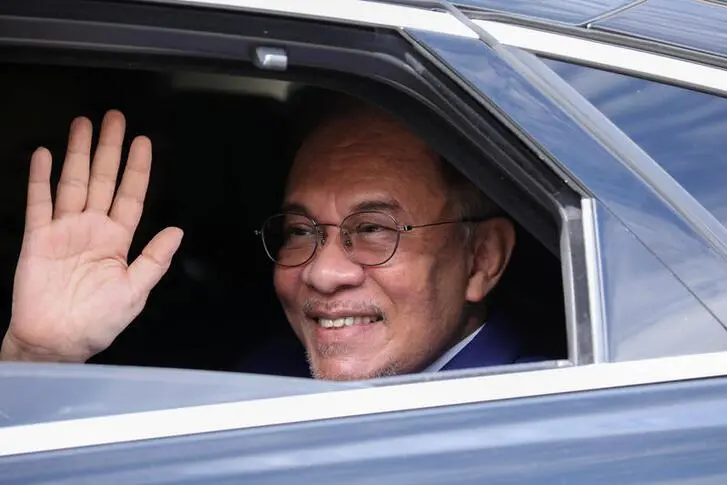PHOTO
KUALA LUMPUR - Malaysian political leaders began their election campaigning on Saturday for what is set to be a close race, with incumbent Prime Minister Ismail Sabri facing off with veterans Anwar Ibrahim and Muhyiddin Yassin.
Polls and analysts say no single party or coalition will win a simple majority in the 222-seat parliament, and that opposing alliances will have to come together to form the next government.
Around 21 million Malaysians are eligible to vote in the Nov. 19 election, with inflation and recent political instability on the top of their minds in the backdrop of a slowing economy. Malaysia has had three premiers since the last election in 2018.
Rival coalitions are headed by Ismail, former premier Muhyiddin and long-time opposition leader Anwar. There are several other parties in the running, including one founded by another former prime minister Mahathir Mohamad, a factor that is expected to split the votes more than ever before.
"This is the first time we are seeing three equally strong coalitions with experienced leaders contesting," said Adib Zalkapli, a director with political consultancy Bower Group Asia.
He said there was a high possibility that there won't be a clear winner in the polls, and that coalitions will have to negotiate to form a government.
Prime Minister Ismail, who is from the Barisan Nasional coalition, said there were no easy wins in any parliamentary seats in this election, state news agency Bernama reported.
He and other leaders filed nominations on Saturday, officially kicking off the two-week campaigning period.
The election comes as the Malaysian economy is expected to ease due to a global slowdown, impeding a recovery from a pandemic-induced slump. Inflation is also rising, with the Malaysian central bank increasing interest rates this week for the fourth straight time.
POLITICAL INFIGHTING
In the last election in 2018, Malaysia's opposition came together to defeat Barisan, which had governed the country uninterrupted for 60 years since independence from British rule.
Barisan, then lead by Najib Razak, was facing widespread anger over the multi-billion-dollar 1MDB scandal and other corruption allegations. Najib began a 12-year jail term this year for graft.
The opposition then included Anwar, Muhyiddin and Mahathir, but their alliance collapsed after just 22 months in power due to infighting. The leaders are not working together in this election.
Graft-tainted Barisan came back to power as part of another alliance after the opposition alliance collapsed.
A poll by independent pollster Merdeka Center showed on Friday that no single coalition will be able a win a majority, and that three or more coalitions will have to come together to form a new government.
The poll also showed that among the three major coalitions, Anwar's was the most favoured by voters – at 26%, though nearly 31% of the voters were yet to decide who to vote for. Barisan came in second at 24%.
(Writing by A. Ananthalakshmi; Additional reporting by Ebrahim Harris and Hasnoor Hussain; Editing by Muralikumar Anantharaman)





















